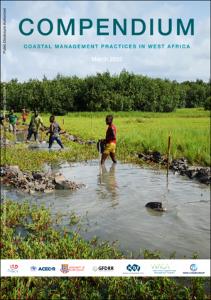Compendium: Coastal Management Practices on West Africa. Existing and potential solutions to control coastal erosion, prevent flooding and mitigate damage to society.

Average rating
votes
Date
2022Author
Rodrigues, Bruna Alves
Bapentire Angnuureng, Donatus
Almar, Rafael
Louarn, Aubrée
Rossi, Pier Luigi
Corsini, Laurent
Morand, Pierre
Corporate Author
World Bank
Status
PublishedPages
90pp.Metadata
Show full item recordAbstract
Erosion and flooding are the most visible consequences of coastal zone degradation in West Africa. Man-made and natural processes, aggravated by the effects of climate change, cause erosion and flooding. These threatened densely populated coasts, the nerve center of the region’s demographic and economic growth. Every year, coastal degradation takes a heavy toll on human life and socio-economic prosperity. Moreover, the Intergovernmental Panel on Climate Change (IPCC) projections suggest that coastal erosion and flooding in West Africa is set to increase in the 21st century. Understanding the hazards and managing the coastline sustainably is a major challenge for the development of the region. The West Africa Coastal Areas Management Program (WACA) supports ongoing efforts led by countries and regional institutions to strengthen the resilience of communities and ecosystems. This is achieved by providing financing, facilitating access to knowledge and deepening dialogue around developmen.....
Resource URL
https://openknowledge.worldbank.org/entities/publication/ad9dbdfc-00ef-5042-a2fa-a00bbbd2c2ffPublisher
World BankWashington D.C.
Document Language
enSustainable Development Goals (SDG)
14.5Maturity Level
MatureSpatial Coverage
West AfricaCitation
World Bank (2022) Compendium: Coastal Management Practices in West Africa - Existing and Potential Solutions to Control Coastal Erosion, Prevent Flooding and Mitigate Damage to Society. Washington, D.C: World Bank, 90pp. DOI:Collections
The following license files are associated with this item:
 Repository of community practices in Ocean Research, Applications and Data/Information Management
Repository of community practices in Ocean Research, Applications and Data/Information Management
